Ever heard of a “side hustle”? Sure you have: it’s when you find smart ways to bring in extra income (on the SIDE of your primary source of income) through work and hustle. The side hustle has become a cornerstone for the modern idea of working (because “putting in 40 hours for the same company for 50 years” is as out of fashion as the leisure suit), as scads of people put multiple streams of income together to form their self-selected salary. Well, Lots of blogs will tell you that you need a side hustle, but wouldn’t you rather get paid to recreate?
Productive hobbies have been a key piece of our family’s financial picture since we got married 12 years ago…
Here’s the gist: you tend to learn a lot about whatever it is that you like to do for fun, leaving you with a bunch of specialized knowledge. “Yeah, well so what?” So what!? With just a bit of effort you can turn that specialized knowledge into dollars, my friend! In order to qualify as a Productive Hobby, you have to be doing something that you would choose to do for rest and relaxation. Do you like to fish, run, antique, build? Good, we can work with any of those. Just don’t lie to yourself and pretend that you’d love nothing more than to spend a Saturday afternoon painting your neighbor’s fence. That’s a different thing (not bad, but not a hobby. That’s… a job).
Option #1: Get paid for your hobby, directly
My most lucrative Productive Hobby, and a key component to my rather dramatic conquest of $180k in educational debt, was picking up the game of poker. I enjoyed the occasional card game with friends and came to realize that with a bit of hard work I could not only out-math those suckers for a few bucks a week, but I could take the same skillset to much larger games and earn around $40 per hour whilst having a great time. Now, before you run out and plunk down a few hundred bucks at the poker table (which you will lose), please consider that turning poker from an expensive into a Productive Hobby was the product of many hours of study and hard work. Accumulating a knowledge edge, in this game, led to money. Away from the poker table, there were even other dudes who were willing to pay me to transfer my knowledge to them through coaching (call me, maybe?). Sweet win! Pay me to play a game I enjoy and am good at!
One of my employees loves to bake – it’s what she does for fun if she has a free afternoon (this is a key difference between Productive Hobby and side hustle). She developed a skill (knowledge) edge in some specific treats and can now command $6 for a single one of her pistachio macaroons (double the competition’s price) because it’s the best thing a human being can ever experience tasting. This is another example of a Productive Hobby directly monetized.
Option #2: Sell the things you use for your hobby
As an undergraduate I spent almost all of my free time racing my bicycle. Though I did earn a few bucks here and there via winnings, this was not a very productive hobby by itself. But… I took a deep interest in the ultra-expensive gear used for cycling. AND, one of the teams I raced for even paid for me to attend some special training so that I could double as the team mechanic (can you feel the knowledge edge sharpening? It is, my humble homies). Soon I had a big knowledge edge over the average cycling enthusiast. Because I was a bike geek, it was great fun to scour Craigslist for gems, and flip them to others for a few hundred bucks of profit per month. Easy! And fun! After moving to Utah and skiing my face off for a couple of winters, I found that I could do the same thing with ski and snowboard gear. Side hustle, go take a shower- the Productive Hobby is waaaaay better!
And now, I will do something amazing for you. I will give you, right here, TODAY, the two necessary ingredients to success as a flipper of merchandise. The first, I’ve already told you: INFORMATION. You can make money in ANY category of products if you have a knowledge edge: If you love vintage watches, there is money to be had finding them on eBay for $50 and reselling them for $250 after a bit of work, which you’ll love doing because, hey, you love vintage watches. The margins you’ll find will be directly proportional to your information edge. I have a friend who often buys coffee tables for $100 bucks and resells them for $5,000, because he has dedicated 35 years of his life to mid century modern furniture. His knowledge edge is huge, and so are his margins.
The second ingredient is TIMING. It’s very hard to AirBnB your backyard storage shed, right? But you can monetize that space with stuff you’re buying and selling through seasonal arbitrage. Let’s go back to my example of bike and ski equipment: I found that I could purchase ski gear all day long at about half its value if I was willing to buy in June, and that gear would return to its full value by the time the snowflakes began to fly in November. (Same deal with bikes, just flip the seasons around.) Because I have a shed out back that can keep this stuff safe while it’s waiting for the earth to rotate to just the right angle and magically imbue it with its full value, I am able to combine my knowledge of the equipment with my previously unused asset (the shed) to earn some money while I play with bikes and skis. THANK YOU, Productive Hobby. You make even my lame backyard shed Abrahamic.
Remember those Capitals
As usual, I’m going to remind you that money is lowest on the list of the 5 capitals that you ought to be pursuing. Hobbies don’t have to generate income to be valuable – you might find that you’re building physical capital or relational capital as you while away your weekend, and that’s great. Even better, you might be like me, and find that shushing down a mountain on a sweet pair of skis is a great place to talk things over with God. Even better! Spiritual capital win! Hobbies are great all around and you should invest in them with full gusto.
So get out there, enjoy yourself with your hobby…and be productive while you do it! Do you have a productive hobby that has had a small or large impact on your financial picture? Would you like to argue about whether poker is a game of skill? Are you interested in purchasing a pistachio macaroon? Tell us about it in the comments!
*Mark Parrett is one of the founders of Abraham’s Wallet. When not blogging for you here, he’s raising a family in Salt Lake City, UT and working as a financial planner at Outpost Advisors.






